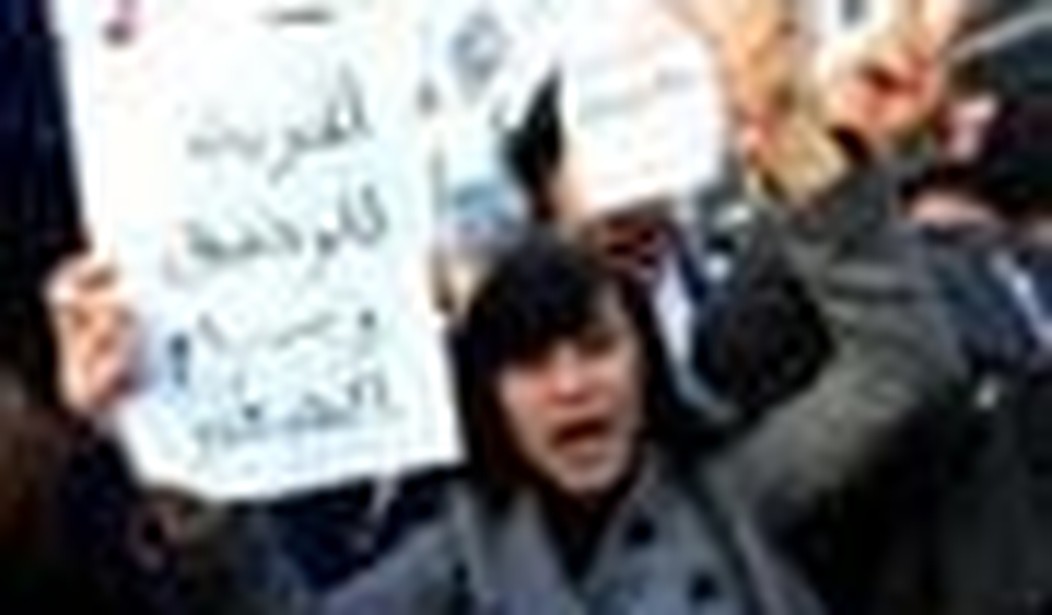It started with a young unemployed man with a university degree in computer science setting himself on fire. Twenty-six-year-old Mohammad Bouazizi was one of more than ten million Tunisians suffering under the dictatorship of President Zine al-Abidine Ben Ali. He had ruled the country for 23 years.
In Tunisia, where corruption is rampant, freedom of speech is curtailed, and, most importantly, unemployment is a staggering 13.3%, Bouazizi had little hope. After the food cart that he hauled around to support his family was forcibly removed from the streets by the police, Bouazizi couldn’t take the shame and humiliation anymore. On December 17, in front of the governor’s office in central Tunisia’s Sidi Bouzid province, he drenched himself in gasoline and lit himself on fire.
Even though Bouazizi survived, word of his suicide attempt gripped a nation tired of authoritarian rule. The people of Tunisia, who had lived under dictatorships for decades, decided enough was enough. Riots began in Sidi Bouzid on December 18. The demands? More jobs and cuts in food prices.
In a country with no hope, these riots forced hope. In the coming days and weeks, protests would slowly spread to the rest of the country as more and more people joined hands in denouncing the dictatorship’s rule.
Throughout Christmas and over the past few days, the government clamped down on the protesters in a manner reminiscent of Iran in 2008 — brutally massacring dissidents, jailing opposition activists, and cutting off internet services in order to slow down the protesters’ march. (The number of dead is in the dozens, depending on which source you believe.)
They failed.
Protesters grew stronger in the face of repression. In the past few days, the capital, Tunis, witnessed some of the largest protests against a Middle East dictator in living memory — outside of Iran, of course. When the unemployed Bouazizi, who was struggling for his life, finally died on January 4, the rage hit a new high.
On Thursday, the government finally seemed to recognize it had begun to lose control. Ben Ali, who had previously claimed that the protesters were nothing but terrorists, appeared on national TV and admitted that he had been wrong. He promised that he would not seek re-election in 2014, dismissing the government and ordering the security forces not to shoot protesters. He also announced new elections in six months.
This only emboldened the protesters further. On Friday, thousands amassed in the capital in front of the Ministry of Interior. While protesters were removed forcibly, several were killed and many others were injured. President Ben Ali had enough. First, a curfew was announced and crowds of more than three people were banned.
Then, sensing that it was too late, President Ben Ali hopped a plane and fled the country — to Jeddah, Saudi Arabia.
Heading towards Malta, then France, reports suggest French President Nicolas Sarkozy denied the president’s plane landing permission from where it turned towards the Gulf — where other dictators feel warmer towards the president.
The military says it is now in control and a former prime minister — Ali Ghannouchi, a close ally of President Ben Ali — appeared on TV to announce that he is now in charge. He said that fresh legislative elections would be held in six months. But it all missed the point.
For the first time, an Arab country has seen a dictator run for his life because the people assembled to shout at the top of their lungs that enough is enough. No longer in Tunisia will people like Ben Ali rule and expect no backlash. Ghannouchi’s promises seem to have had no effect.
Tunisian activists online announced that Ben Ali’s departure is not the end of their protests. That they will continue protesting until all of Ben Ali’s associates have been sidelined from the government and a unity government that is democratic and guarantees freedoms for Tunisians is put in place.
As you read these words, protesters in Tunisia are continuing their march on government buildings — according to Al-Jazeera — and more protests are expected on Saturday. The legacy of a man setting himself on fire to protest unemployment is a nation of citizens turning on their authoritarian rulers to gain their freedom. I’ll borrow a line from Michael Ledeen: faster please!









Join the conversation as a VIP Member